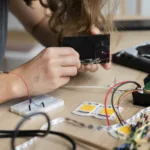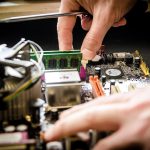
Lithium-ion batteries are known to as a type of rechargeable batteries. As compared to other rechargeable batteries they have a higher energy density, higher cell voltage, and low self-discharge. They have been growing in popularity and are mostly used in electronic and electric vehicles also in mobile phones and other similar gadgets. As time goes by, lithium-ion batteries are decreasing their life span. This degradation isn’t very pleasing and need to be controlled. This could be good for smartphone manufacturers because in that way they can sell more batteries. However, with the help of a few simple tips you can extend the life of your electronic components like batteries.
Protecting Battery Pack

The components of the battery pack like current collectors, the separator, electrolyte, cathode, and anode start degrading with time. Several factors can lead to this degradation but good thing is that it can be controlled or avoided. You need to protect your battery pack from extreme temperatures. For example if you are charging your phone and it has high temperature or when the temperature is too low, both of these extremities can speed up the degradation process. Therefore it is more suitable to charge you batteries when it is within the normal range.
Use Partial-Discharge Cycles

Using partial charging cycles mean that you make sure your battery neither gets too empty nor too full. You need to make sure not to discharge your battery less than 20-30%, this will extend the life span of the batteries. Full discharge cycles should be avoided in order to avoid degradation of the battery.
Avoid Charging to Full Capacity

Find a charging routine that is suitable for the battery and do not leave it charging overnight. Remove it from charge as soon as it gets full. This can damage the batteries. In fact it would be better to avoid charging the battery to its full capacity. You can achieve this by selecting a lower float voltage. Reducing the float voltage will increase the life span of the battery. If you want to increase voltage from two to five times or more, then a 100-mV to 300-mV of drop in float voltage would be suitable.
Avoid Fast Charging and Discharging

Avoiding fast charging and discharging is also one way of avoiding faster degradation of lithium-ion batteries. This may seem convenient to you but it can heat up your battery pack as previously mentioned extreme temperatures can damage these batteries. Along with that you should also avoid fast discharging of your batteries. Avoid using application that drain out your battery charge faster.
Avoid Deep Discharges

Deep discharges can permanently damage the batteries. If you deeply discharge a lithium-ion battery internal metal plating can occur which causes short circuits, damaging the battery and making it unsafe. If the battery voltage is less than 2.5 V or more than 4.3 V, then the protection circuitry within the battery pack will open the battery connection.
Conclusion
Following the tips above can help you slow down or avoid degradation of batteries. To stop the electronic components to degrade faster the recommended charging capacity is ±1% Voltage-limited with constant current until it becomes fully charged.





















